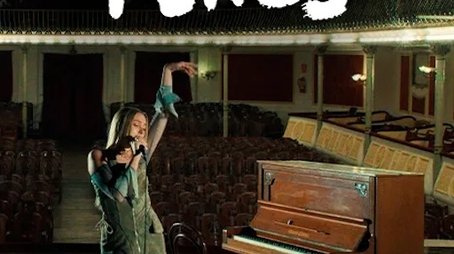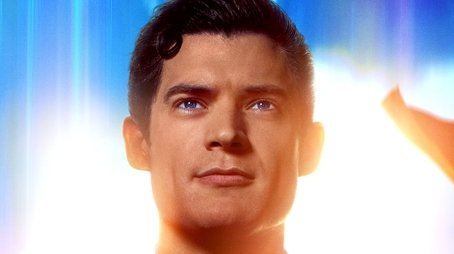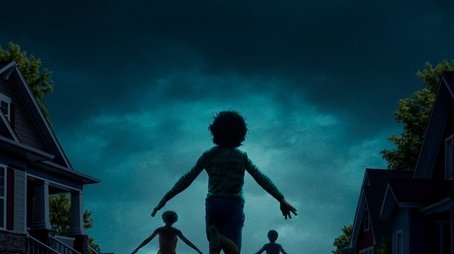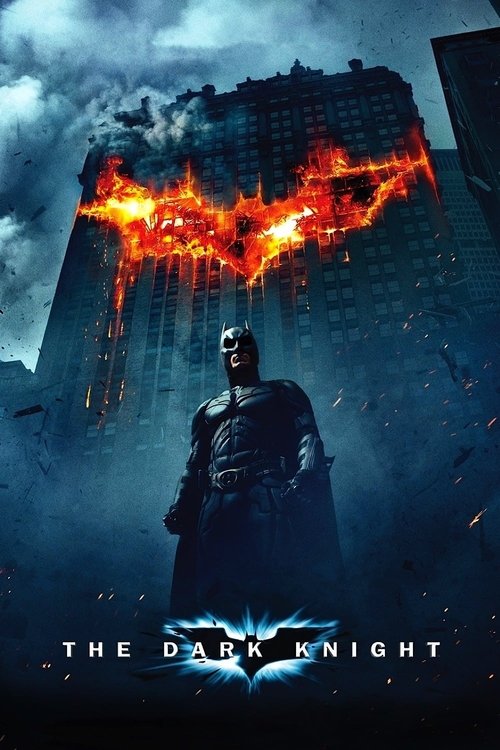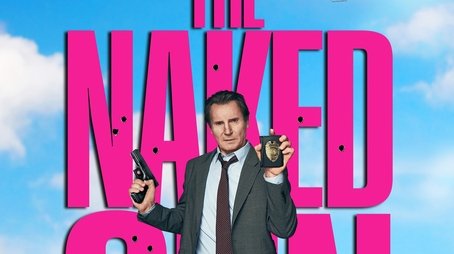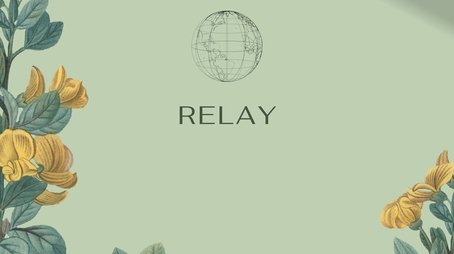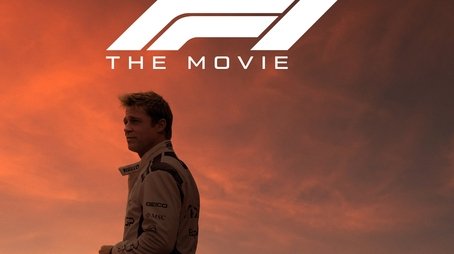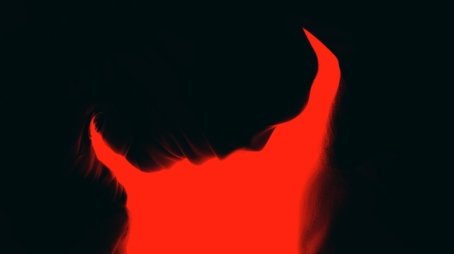Ask Your Own Question
What is the plot?
The story begins with Michel, a successful architect, who is finalizing a major project when he receives a sudden phone call informing him that his brother Patrice has disappeared without any explanation. Without telling his wife or children, Michel immediately decides to search for Patrice, knowing instinctively that he will find him in the remote Canadian Far North.
Michel travels to the isolated wilderness where he and Patrice spent their early childhood. Flashbacks reveal that after the war, when Michel was 4 and Patrice was 5, the two brothers were abandoned and lived alone in the forest for seven years. Their mother made no effort to find them during this time. The boys survived by relying on each other and the natural environment, developing an unbreakable bond through their shared hardship and autonomy.
Upon finding Patrice, Michel discovers that although his brother has built a seemingly fulfilled adult life, Patrice is haunted by nostalgia for their childhood freedom and the intense experiences they endured together. Patrice confesses that despite their professional successes--Michel as an architect and Patrice as a doctor--there remains a void inside him that nothing has filled. He expresses a longing for the exhilaration and rawness of their early years in the wilderness.
The narrative unfolds through a series of flashbacks interwoven with present-day scenes. These flashbacks detail the brothers' survival tactics in the forest: how they found food, built shelter, and protected each other from dangers. The story emphasizes the psychological and emotional impact of their abandonment and isolation, showing how these experiences shaped their adult personalities and their complex sibling relationship.
In the present, Michel tries to help Patrice confront his past and reconcile with the trauma that still affects him deeply. Their conversations reveal secrets and unspoken feelings that have long been buried. Michel struggles with his own feelings of guilt and responsibility for Patrice, while Patrice wrestles with his identity and the meaning of their shared history.
The climax occurs when Patrice, overwhelmed by his unresolved trauma and the emptiness he feels despite his achievements, makes a key decision to face his past head-on rather than continue running from it. Michel supports him in this decision, and together they begin to rebuild their fractured relationship, acknowledging both the pain and the strength that their childhood forged between them.
The film ends on a poignant note, with the brothers standing together in the wilderness where they once survived as children, symbolizing their renewed bond and the hope for healing. Patrice's final reflection, "I thought becoming someone would fill the void. We started at the end. We started with the best," encapsulates the bittersweet nature of their journey and the enduring impact of their shared past.
What is the ending?
The ending of the 2024 film Les Frères (Frères) shows the two brothers, Michel and Patrice, confronting the lasting impact of their childhood survival in the Canadian wilderness. As adults, they face the emotional void left by their years alone, despite their professional successes. The film closes on a note of bittersweet reflection on their bond and the scars of their past.
Expanding on the ending in a detailed narrative fashion:
The final scenes open with Michel, now grown, journeying into the vast Canadian Great North, the very wilderness where he and his brother Patrice spent seven years surviving alone as children. This journey is both physical and emotional, as Michel seeks to reconnect with Patrice, who has become a successful architect, while Michel himself is a doctor. The film uses flashbacks interspersed with present-day scenes to reveal the harsh conditions they endured and the deep bond forged in isolation.
As Michel finds Patrice, the brothers share a quiet, intense reunion. Their conversation reveals the emotional distance that has grown between them over the years, despite their shared history. Patrice expresses a poignant thought: "I thought becoming someone would fill the void. We started at the end. We started with the best!" This line encapsulates the film's core theme -- that their early autonomy and survival shaped their identities but also left an unfillable emptiness.
The narrative then shifts to a series of reflective moments where both brothers confront their trauma and the secrets they have kept from each other. The film carefully portrays their internal struggles through charged dialogue and subtle expressions, emphasizing the complexity of sibling relationships marked by shared hardship.
In the closing scene, the brothers stand together looking out over the wilderness, symbolizing both the past they survived and the uncertain future they face. Neither brother's fate is dramatically altered in a conventional sense; instead, the film leaves them in a state of unresolved tension, highlighting the enduring impact of their childhood ordeal.
Michel and Patrice's fates are thus intertwined with their past: they have achieved professional success but remain haunted by their early years. The film ends without a neat resolution, underscoring the lasting emotional scars and the unbreakable bond between the brothers.
This ending reflects the film's exploration of survival, trauma, and the complexity of family ties, portraying the brothers not as heroes who have overcome their past, but as individuals still grappling with its consequences.
Is there a post-credit scene?
The TV show Les Frères produced in 2024 does not have a post-credits scene. There is no information or indication from available sources, including cast and crew listings or reviews, that a post-credits or after-credits scene exists for this show. The search results do not mention any such scene, and similar recent productions from 2024 typically specify if they include post-credits content, which Les Frères does not.
What motivates Charles Sun's internal conflict about killing his brother Bruce in Les feres?
Charles Sun struggles with the decision to kill his brother Bruce because, despite being manipulated by their father Big Sun into becoming an assassin, Charles finds himself unable to go through with killing Bruce when he tracks him down at a motel. This hesitation is compounded by Bruce's suggestion that Charles should kill their father to escape his influence, and Eileen's revelation that their father manipulated Charles into his violent path, which leads her to escape with Bruce to the United States.
How does Eileen's ambition influence the power dynamics within the Jade Dragons triad?
Eileen returns to Taipei with Charles after escaping to the United States, harboring ambitions to take over the Jade Dragons triad herself. She also ensures her husband Big Sun remains quiet and bedridden by giving him an insulin overdose while he is in the hospital, effectively consolidating her influence and shifting the power dynamics within the triad.
What role does Bruce play in confronting their father Big Sun in the series?
Bruce takes an active role in confronting their father Big Sun by shooting him in the stomach, intending only to wound him so that Big Sun would be arrested in the hospital. Bruce also persuades Charles in jail to reveal Big Sun's hiding place, asserting that he will kill their father himself, which shows Bruce's determination to end their father's control over the family.
What happens to Charles after he tries to stop Xing from finishing a job?
Charles is arrested when he tries to stop Xing, who was sent by their father Big Sun to finish a job. However, Eileen manages to kill Xing, which prevents further harm to Charles and shifts the balance of power within the family and triad.
How do the brothers' lives change after freeing themselves from their father's influence?
After freeing themselves from their father's influence, Bruce continues his studies and improv, Charles opens a pastry shop, and Eileen returns to Taipei with Charles with the hope of taking over the Jade Dragons. This marks a significant shift from their previous lives dominated by their father's control and the violent triad world.
Is this family friendly?
The 2024 film Les Frères (Brothers), directed by Olivier Casas, is not particularly family friendly due to its mature and potentially upsetting content. It depicts the true story of two young brothers who survive alone in the wilderness for several years, which involves themes of child abandonment, survival hardships, and trauma.
Potentially objectionable or upsetting aspects for children or sensitive viewers include:
- Scenes of children living in harsh, wild conditions alone, which may involve distressing survival situations and implied suffering.
- Emotional trauma and psychological struggles stemming from abandonment and isolation.
- The film explores dark and intense family dynamics and secrets, which may be emotionally heavy.
- There may be flashbacks to difficult childhood experiences that include hardship and deprivation.
There is no indication of explicit violence or graphic content, but the overall tone is serious, dramatic, and emotionally intense, focusing on trauma and survival rather than light or child-appropriate themes. Therefore, it is best suited for mature audiences and not recommended for young children or those sensitive to themes of abandonment and psychological distress.

